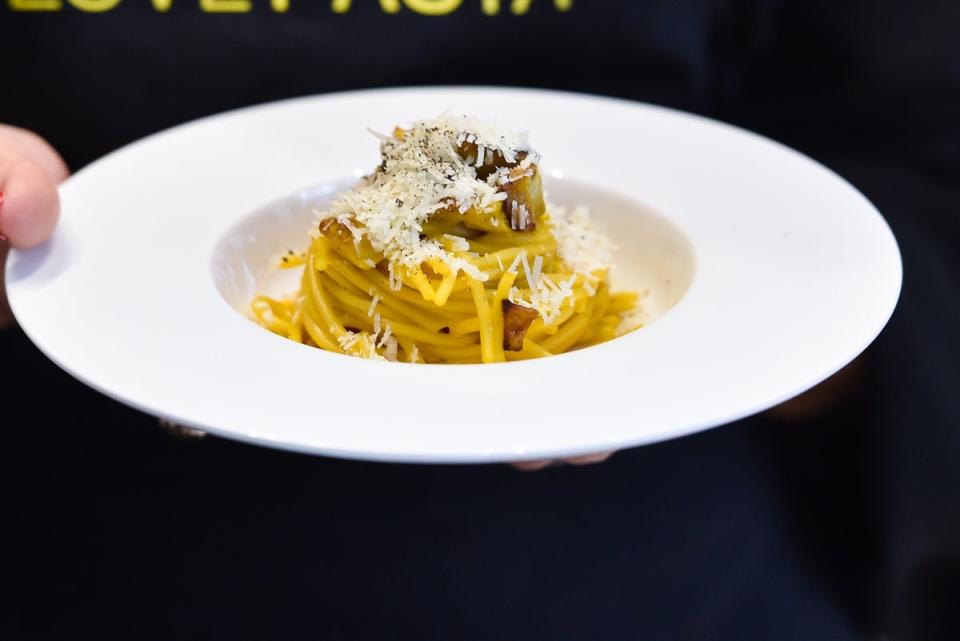Food expert sparks fury after claiming famous Italian dishes are actually American

An Italian food expert has sparked fury after claiming that many of the country’s most famous dishes are actually American.
Alberto Grandi, a food historian at the University of Parma, said that some of Italy’s most revered recipes have “a very brief history” and were based on “fairy tales”.
Writing in La Repubblica on Tuesday, Mr Grandi said there were “misunderstandings” around Italian cuisine and its “value and history”.
Last week, Mr Grandi told the Financial Times that Italians had “invented” their culinary traditions.
He claimed that the recipe for carbonara was American, citing historical evidence that it had first been made by an Italian chef in 1944 for American soldiers in Riccione.
Elsewhere in the interview, he claimed that tiramisu and panettone were only recent inventions.
“For my father in the 1970s, pizza was just as exotic as sushi is for us today,” he told the newspaper.
“Italian cuisine really is more American than it is Italian.”
Coldiretti, Italy’s national farmers’ association, accused Mr Grandi of mounting a “surreal attack on the iconic dishes of Italian cuisine”.
“On the basis of imaginative reconstructions, the most deeply rooted national culinary traditions are disputed,” the association said.
“In essence, [he claims] the Americans have invented carbonara, and panettone and tiramisu are recent commercial products. Above all, [the interview] goes so far as to hypothesise about parmesan and the one produced in Wisconsin in the US – the homeland of fake ‘made in Italy’ cheeses.”
Deputy prime minister Matteo Salvini said “experts and newspapers are envious of our tastes and beauty”.
But Mr Grandi dismissed the criticism as “a nationalistic controversy”, saying his critics had even claimed he was part of an “anti-Italian conspiracy”.
“I don’t understand why many attack me,” he said.
“I don’t question the quality of Italian food or products, I reconstruct the history of these dishes in a historical and philologically correct way.
“With my studies I have shown that many preparations derive from the last 50 to 60 years of history and from interactions with the American culture.”

 Yahoo Sport
Yahoo Sport 





































